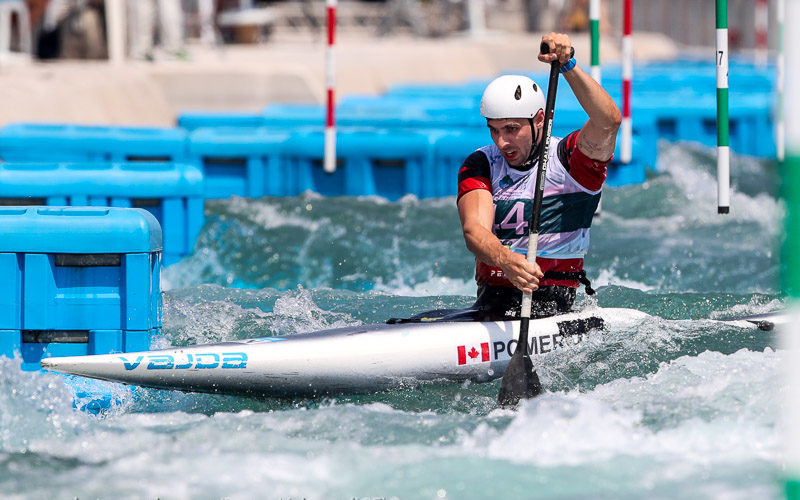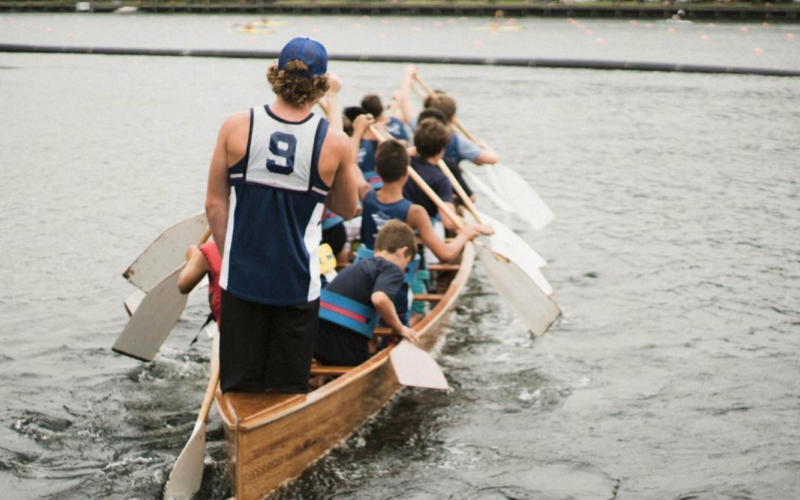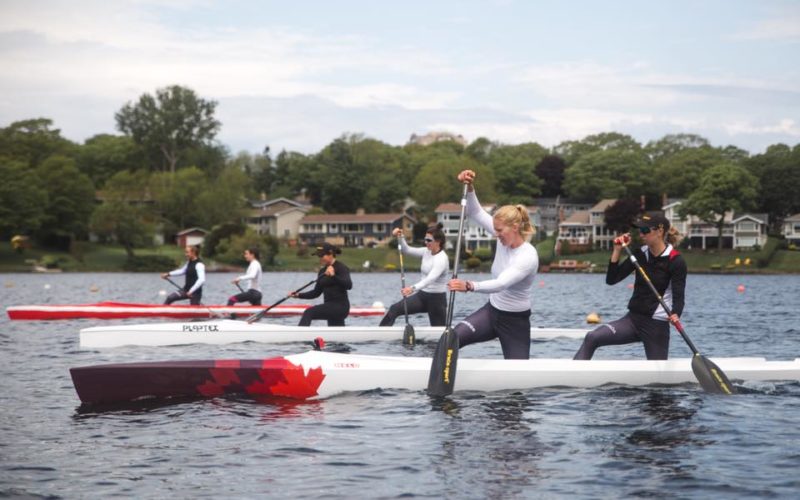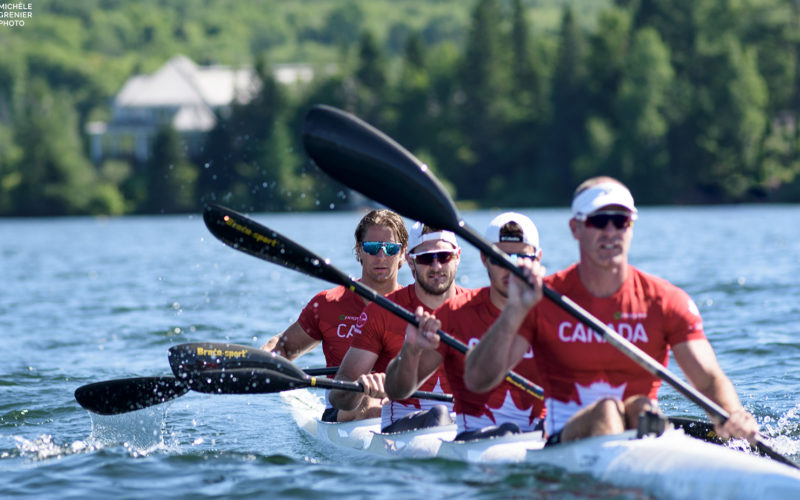By Stu Chase
It took until the Summer of 2018, but I finally received one of those bada** big plaques for winning a national championship–I am a para paddler, and in 2017 I won the VL3 200m race (No, I don’t expect anyone outside of para to understand what that category means!) It felt incredibly special to hold this award in my hands. It’s going to hang proudly on my wall (right next to my wife’s!! SHE won a national championship when we were teenagers. Kate Ballem, Juvenile women’s K1 500m champion, 1997. Look it up!).

My new plaque, along with my other medals pictured, led to those other plaques from Canoe Kayak BC and my home club, False Creek.
But back to the big plaque. In the photo, where you can see my name, along with ‘False Creek Canoe Club’—that’s the first time in more than 30 years that someone from the club has been able to claim a championship in the name of False Creek at the Canoe Kayak Canada Sprint Championships. It’s a long, dull story as to why that is, pertaining mainly to various insurance policies that no one wanted to deal with for a few decades, so we won’t go into much detail on that here! Fact is, there have been other champions from this club—Olympians, even—but none have been able to race under the False Creek club name at a flatwater sprint national championship until 2017.
Score one for the history books: I’m the first gold medalist to race FOR False Creek, instead of having to race under another club’s colours, since who knows when. So that’s kinda cool.

Last but not least: This plaque marks both a first for me, and a last (for now!). The unfortunate reality is that I will not be able to claim any more titles like this in the near future: this is a para award, and the classifications changed this year, discounting anyone with an upper limb disability from being able to qualify officially for para canoe & kayak events.
This is an international problem more than a national one. Canoe Kayak Canada will continue to lead in the inclusion of this class in ‘open’ and exhibition categories domestically going forward, so you’ll still see upper limb impaired paddlers out there, but internationally, as of the 2018 racing season the start lines are off-limits for “folks like me”.

The discipline and category in which I won this award will make its Paralympic debut in 2020, but I, nor others with a disability or impairment like mine, will have the chance to aim for that target. I am the chair of the Canoe Kayak Canada para committee, and alongside my peers in this group hopefully we can work to change that in coming years, but it won’t be part of this Paralympic cycle.
So for the time being, I will savour in this plaque on the wall. I will savour in what it means to me to be part of a dedicated, inclusive community, and of course, like always, I’ll be on the water.
Paddles up!



